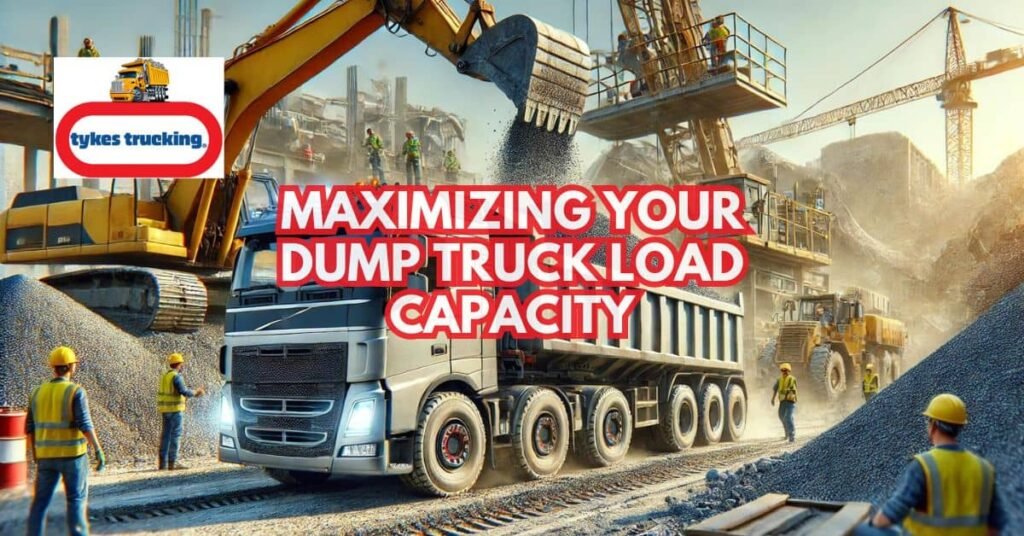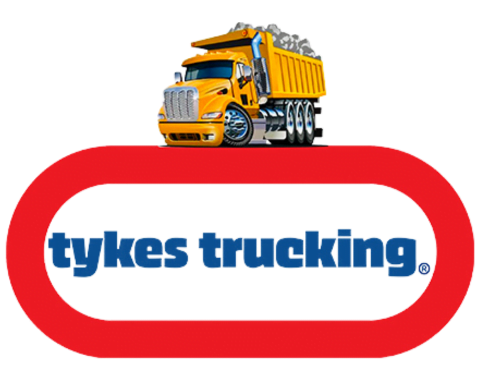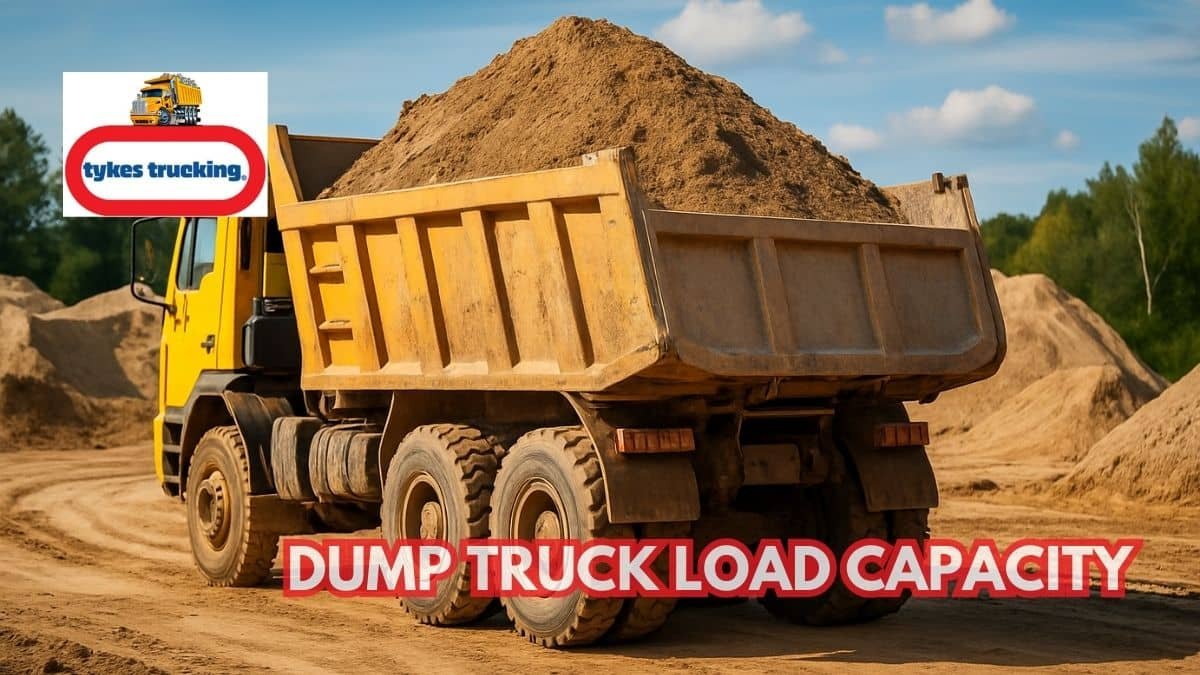Maximizing dump truck load capacity is important for getting more work done with fewer trips.
Carrying the right amount of material helps save fuel, reduce time on the road, and lower costs for the business.
Proper load planning also protects the truck by reducing stress on parts like tires, brakes, and suspension.
When loads are managed well, trucks last longer and need fewer repairs, which adds to overall savings.
We’ll share practical tips to help you increase dump truck load capacity while keeping safety and rules in mind.
1. Understanding Your Dump Truck’s Load Capacity
Each dump truck has a specific load capacity that must be understood to avoid overloading and to ensure safe use.
Dump truck capacity is influenced by the design of the vehicle, including axle ratings, suspension strength, and the type of tires it uses.
The capacity of dump trucks can vary widely, with some smaller models handling light jobs while larger models are built for heavy hauling.
A standard dump truck can carry different amounts depending on whether the material is light or dense.
Operators must pay attention to both the size of the load and the maximum weight allowed for their truck.
Going past the rated limit not only increases fuel use but can also damage the engine, suspension, or braking system.
Knowing how much a dump truck can carry helps in planning loads so that each trip is efficient and safe.
Following manufacturer instructions and legal weight rules in your region is essential to stay within safe limits.
Careful attention to dump truck capacity ensures longer truck life, fewer breakdowns, and safer hauling.
🚚 Mastering the Dump Truck Automatic Transmission
2. Considering Material Density for Optimal Loading
Material density is a key factor in deciding how much a dump truck can safely carry without going over weight limits.
A cubic yard of gravel, for example, may look smaller in volume but can weigh many tons, which can easily push a truck past its safe limit.
Lighter materials like mulch or sand may fill the truck bed but still weigh less compared to heavy stone.
Operators need to understand that the same truck can carry different amounts depending on whether the load is light or made up of dense materials.
Always calculate the total load by looking at both the cubic yard measurement and the type of material being hauled.
This helps avoid situations where the truck appears only half full but is already carrying tons of material.
Using scales or payload systems can give precise measurements to prevent overloading.
Careful planning based on material density allows trucks to work more efficiently while staying safe on the road.
🚚 Why Commercial Dump Truck Hauling Is Essential for Large-Scale Earthmoving
3. How Environmental Conditions Affect Load Capacity
Environmental conditions can significantly impact a dump truck’s load capacity and overall safety.
For instance, wet or icy roads may require reduced loads to maintain traction and control.
Similarly, steep or uneven terrain can affect how much weight a truck can safely carry.
Monitor weather forecasts and road conditions regularly to adjust loads accordingly.
By considering environmental factors, you can ensure that your trucks operate safely under varying conditions.
🚚 How to Choose the Right Dump Trucks for Residential Construction for Your Site
4. Proper Loading Techniques for Maximized Capacity
Proper loading techniques are essential for maximizing a dump truck’s capacity while keeping the load safe and stable.
Dump trucks typically perform best when the material is spread evenly across the bed, which prevents one side from carrying too much weight.
Uneven loads can cause the truck to lean, place stress on the suspension, and raise the risk of tipping over.
Using the right equipment, such as a front-end loader or conveyor, helps place material more evenly and with greater accuracy.
Loads should also be covered with tarps or nets to stop spillage and keep the weight balanced during travel.
Trained workers who understand these techniques can make sure each load is prepared safely and used to its full capacity.
🚚 Dump Truck Tire Size Matters: Impact on Performance and Cost

5. The Importance of Regular Truck Maintenance
Regular maintenance is vital to keeping dump trucks in top condition, directly affecting their load capacity.
Routine checks on the engine, brakes, and suspension ensure that the truck can handle maximum loads safely.
Maintenance also includes inspecting hydraulic systems, lights, and electrical components to prevent failures during operation.
Regular oil changes, filter replacements, and fluid checks help maintain engine efficiency and reduce wear.
A well-maintained truck operates more efficiently and is less likely to encounter unexpected breakdowns.
🚚 Trucking and Hauling Services in the Philippines
6. Maintaining Correct Tire Pressure for Efficiency
Correct tire pressure is crucial for maximizing load capacity and ensuring fuel efficiency.
Under-inflated tires can cause increased rolling resistance, leading to higher fuel consumption and reduced load capacity.
Over-inflated tires, on the other hand, may lead to uneven wear and a higher risk of blowouts.
Regularly check tire pressure and maintain it according to the manufacturer’s specifications to ensure optimal performance.
Proper tire maintenance also extends tire life and improves overall vehicle safety.
🚚 How Does a Dump Truck Tailgate Lock Enhance Safety on Construction Sites?
7. Fuel Efficiency Practices for Better Load Capacity
Managing fuel use wisely helps dump trucks carry more loads at lower costs.
Reducing idling time saves fuel that would otherwise be wasted when the truck is not moving.
Smooth driving, with gentle starts and stops, keeps fuel use lower and makes the truck last longer.
Some operators also use fuel additives that help the engine burn fuel more cleanly and efficiently.
Paying attention to these simple fuel habits can improve both daily work and overall savings.
🚚 Flatbed Truck Stake Sides: Safety and Security Combined
8. Exploring Payload Management Systems for Precision
Payload management systems are advanced tools that help monitor and optimize dump truck load capacity with precision.
These systems provide real-time data on load weights, allowing operators to make informed decisions about loading and unloading.
They help prevent overloading by alerting drivers to weight limits, ensuring compliance with safety regulations.
Some systems offer automatic load balancing features to distribute weight evenly across the truck bed.
Investing in a reliable payload management system can enhance operational efficiency and reduce the risk of fines and accidents.
🚚 Know Your 40-Foot Flatbed Trailer Dimensions: Avoid Oversized Loads
9. Complying with Weight Regulations to Avoid Issues
Complying with weight regulations is crucial to avoid legal issues and ensure the safety of your operations.
Different regions have specific weight limits for trucks, including axle load limits and gross vehicle weight restrictions.
Understanding and adhering to these regulations helps prevent fines and reduces the risk of accidents caused by overloading.
Use weigh stations and portable scales to verify load weights before leaving the loading site.
Staying informed about weight regulations also helps maintain your company’s reputation and avoids costly penalties.
🚚 What Are the Safety Considerations for Dump Truck Gravel Delivery?
10. Driver Training on Load Capacity and Safety
Proper driver training is essential for maximizing load capacity while maintaining safety standards.
Educate drivers on the importance of load distribution, weight limits, and safe driving practices under various conditions.
Training programs should cover the use of payload management systems, weight regulation compliance, and emergency response procedures.
Well-trained drivers are better equipped to handle unexpected situations and make informed decisions regarding load adjustments.
Ongoing education ensures that drivers stay updated on best practices and safety protocols.
🚚 Delivery of Aggregates Using Dump Trucks
11. Regular Inspections to Ensure Safe and Optimal Hauling
Regular inspections of dump trucks are necessary to ensure they remain safe and capable of handling maximum loads.
Conduct thorough checks of the truck’s frame, suspension, brakes, and hydraulic systems to identify any wear or damage.
Inspect the bed for any cracks or weaknesses that could affect load stability and security.
Schedule inspections frequently to catch potential issues early, preventing costly repairs and downtime.
Routine inspections help maintain safety standards and optimize the truck’s performance over time.
🚚 Marikina-Based Dump Truck Rental Solutions
💡 Conclusion
Optimizing dump truck load capacity involves a combination of knowledge, maintenance, and strategic planning.
By understanding your truck’s specifications, complying with regulations, and implementing proper loading techniques, you can enhance operational efficiency.
Regular maintenance and inspections ensure that your vehicles remain in top condition, while advanced technology and driver training contribute to safe and effective load management.
Implementing these tips will help your hauling operations achieve maximum productivity and profitability while maintaining safety standards.
With careful attention to these factors, your dump truck fleet can operate at its full potential.
😉 Our Services
At Tykes Trucking Services, we specialize in delivering top-quality aggregates and providing reliable hauling services to meet your needs.
Our experienced team is committed to ensuring safe and efficient transport, whether for construction projects or personal requirements.
We pride ourselves on our timely deliveries and exceptional customer service.
For inquiries or to schedule a service, contact us at 09175435019, reach out via our Facebook page, or use the contact form on our website.
Trust Tykes Trucking Services for your aggregate delivery and hauling needs.
❓ FAQs
1. What is the best way to know my dump truck’s load capacity?
The best way is to check the manufacturer’s guide for your truck.
It lists the gross vehicle weight rating, axle limits, and other details.
You should also follow local weight laws in your area.
Combining both helps you avoid overloading.
This protects your truck and keeps your work safe.
2. How can I make sure I am not overloading my dump truck?
You can use portable scales or visit a weigh station before leaving the site.
Payload management systems also give real-time weight data.
Always measure both the weight and the volume of the material.
Material density plays a big role, so heavier loads like gravel need extra care.
Planning ahead helps prevent overload problems.
3. Why does tire pressure affect dump truck load capacity?
Tire pressure affects how much weight the tires can carry safely.
Low pressure makes the truck use more fuel and wear the tires faster.
High pressure can cause uneven wear and increase the chance of blowouts.
Keeping the correct pressure helps the truck run smoothly.
It also makes loads safer and more efficient.
4. How do environmental conditions change load capacity?
Wet or icy roads make it harder for the truck to grip, so carrying lighter loads is safer.
Steep or uneven ground also reduces how much a truck can handle.
Heat can affect tire pressure and strain engines more.
Always check weather and road reports before loading.
Adjusting for conditions lowers risks and improves safety.
5. What simple steps can drivers take to improve fuel efficiency?
Drivers can cut idling time and avoid sudden starts or stops.
Smooth driving helps the engine use less fuel.
Regular maintenance also improves efficiency.
Some operators use fuel additives for cleaner burning.
These steps save money and allow trucks to carry more work at a lower cost.

